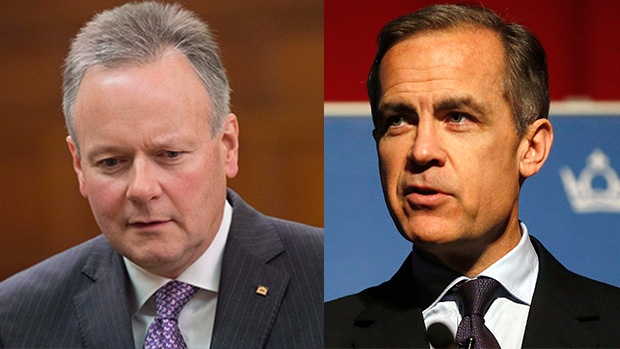Jul 12, 2016
How Carney laid the groundwork for Poloz’s household debt warnings
By Greg Bonnell

ANALYSIS: The Canadian economy is facing challenges: the housing market is on fire, and our central banker is sounding the alarm on household debt.
Stop me if you’ve heard this one before.
It’s a story that stubbornly refuses to go away. And it is one Bank of Canada Governor Stephen Poloz will tell again Wednesday as he updates the bank’s economic forecasts and delivers an interest rate decision.
While the bank’s key rate is expected to remain at 0.5 per cent, we should anticipate more concerned musings on debt and home prices.
Last month, Poloz delivered his most frank assessment yet of Canada’s runway housing markets. He warned potential homebuyers not to count on endlessly rising home prices, adding it is unlikely Vancouver and Toronto’s torrid gains can be sustained.
It was the kind of stern warning Canadians grew accustomed to under former Governor Mark Carney, starting as far back as 2009.
“Responsibility starts with the individual,” Carney said in a speech in which he laid out the extraordinary measures -- namely unusually low borrowing rates -- the bank put in place to combat the global financial crisis.
There was a risk, Carney added, of Canadians borrowing more than the bank was projecting given such low rates.
“It is the responsibility of households now to ensure that in the future, when the recovery takes hold and extraordinary measures are unwound, they can still service their debts,” he told the Toronto audience.
We had been warned.
In 2012, Carney turned up the pressure. Household debt was soaring as Canadians took advantage of cheap money to buy increasingly expensive homes, among other assets.
He even threatened to raise interest rates, as a last resort, if the threat became too large.
“In exceptional circumstances, if there are issues that threaten financial stability, such as household debt ... the bank could use monetary policy for that purpose,” Carney told The Canadian Press in an interview.
Four years later, it appears the Bank of Canada is in an even tighter spot.
Economists and pundits say the bank’s key policy rate is too blunt an instrument to rein in the hot housing markets. After all, how do you cool Toronto and Vancouver without crashing vulnerable markets where prices are flat or have seen an oil-related pullback, such as Calgary.
Meanwhile, the Canadian economy continues to struggle and the bank is expected to take down its growth forecast for this year to around 1.3 per cent, from 1.7 per cent.
“If this were a purely mathematical exercise, (a rate cut) would make sense,” Emanuella Enenajor of Bank of America Merrill Lynch wrote in a note to clients.
However, Enenajor noted, “housing is overheated.”


